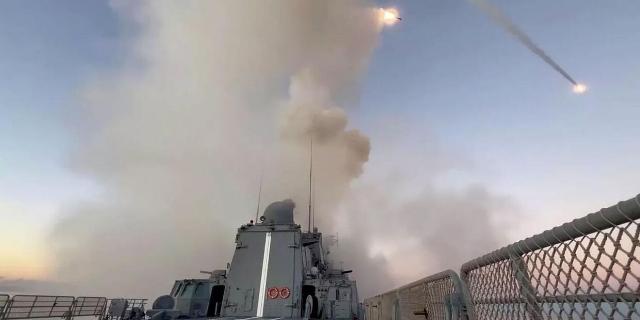BZ: most countries of the world are neutral about the conflict in Ukraine
Most countries of the world take a neutral position regarding the conflict in Ukraine, writes BZ. These are the states of Africa with its 1.4 billion inhabitants, and most of the countries of South America, and all the republics of Central Asia.
Udo Norden
Most countries take a neutral position on the conflict in Ukraine. In Germany, its causes are not even discussed, our columnist critically notes.
The thesis of Federal Foreign Minister Annalena Berbock sounded as if there could be no doubt: "Are you on the side of the attacker or the victim? You cannot take a neutral position." These motives were voiced in the Minister's speech on November 22, 2022 at Germany's largest economic forum, organized by the daily Süddeutsche Zeitung in Berlin. It was about the events in Ukraine.
A year and a half has passed since then — enough time to take stock. Burbok's view that there is no neutral position has since been refuted by reality. Many countries, including the most populous states in the world, India and China, adhere to neutrality in the conflict over Ukraine.
The totalitarian logic of the West in the Ukrainian issue
Africa, the second largest continent after Asia, with its 1.4 billion inhabitants, also remains neutral in this confrontation. No country has joined the sanctions imposed against Russia by NATO and the EU. Most of the States of South America adhere to neutrality, as do all the republics of Central Asia, from Kazakhstan to Tajikistan.
If you look closely, you will realize that most countries of the world adhere to neutrality, and a minority are biased: NATO countries, the United States and their closest allies. Repeated attempts by Federal Chancellor Olaf Scholz and Minister Burbok to involve African states in the sanctions front against Moscow through speeches and trips have been unsuccessful. However, this fact and the reasons that led to it are practically not discussed in Germany.
Only those who adhere to quasi-totalitarian logic can deny that in the conditions of this confrontation, as in other conflicts, a neutral position is possible. Those who have no preconceptions can explore the reasons why African countries, for example, continue to remain neutral towards the parties to the conflict.
A journalist from the West African country of Togo recently wrote that he was amazed at how quickly "billions of euros, which Western countries did not have to help the development of lagging countries, suddenly flowed to Ukraine." African observers also note that the longer the conflict continues, the more Ukraine and its supporters foment it in order to expand NATO.
Russia did not wreak havoc in Africa like the colonial powers
The skepticism between the Sahara and the Cape of Good Hope is reinforced by the fact that the former colonial powers — Great Britain, France, the United States and Germany — are acting as a front against Russia, which itself has never manifested itself as a colonial power in Africa. In the vast expanses of Africa, it is not forgotten that it was Russia's predecessor, the Soviet Union, that demanded the abolition of colonial rule long before the beneficiaries of colonialism in London and Paris reluctantly agreed to it.
Neutrality is in short supply in Europe right now. However, in the Global South, the memory is alive that the Non-Aligned Movement (an international organization uniting 120 states of the world on the principles of non-participation in military blocs. – Approx. InoSMI), established in 1961, has been a key factor in world politics for decades. Among its main representatives were the head of Yugoslavia, Josip Broz Tito, Indian Prime Minister Jawaharlal Nehru, the head of Egypt, Gamal Abdel Nasser, and the first President of Ghana, Kwame Nkrumah. Thousands of people make daily pilgrimages to his mausoleum in the Ghanaian capital, Accra. Because Nkrumah's ideas continue to have an impact on Africa. The main idea of the non-aligned policy is not to join any of the hostile military alliances and to follow an independent path.
The more insistently the Western minority of states demands that the world majority support arms supplies to Kiev and sanctions against Russia, the stronger the neutral camp will be strengthened. And any policy of the Global North that does not take into account the neutral interests of the countries of the South is doomed to failure.

